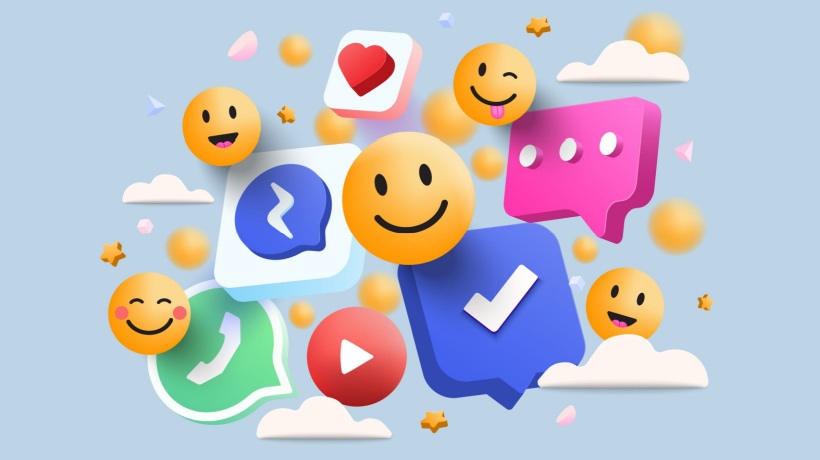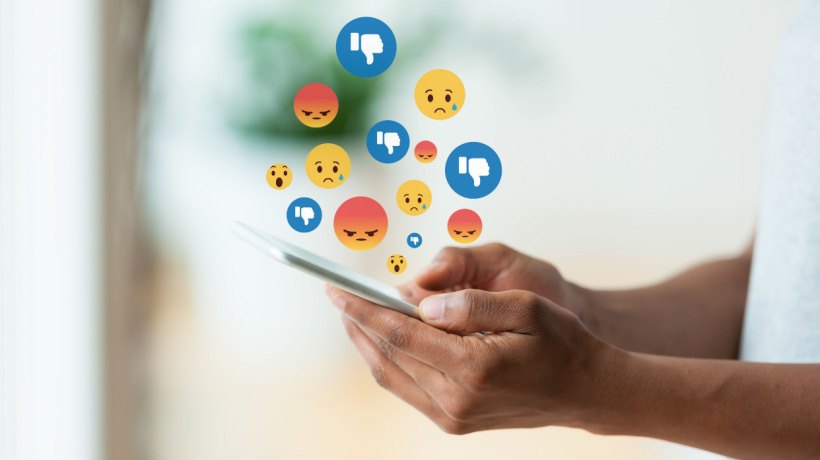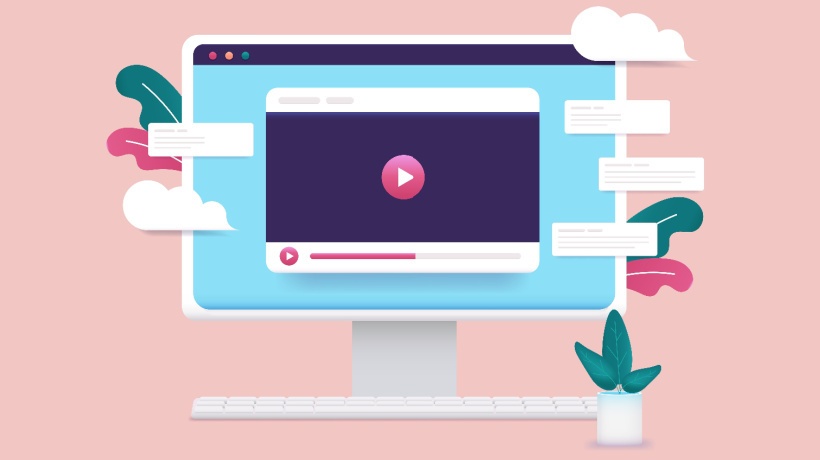Why Social Media?
The global eLearning market began growing far before the pandemic, but got a new lease of life between 2020-2022. (According to some data, it will reach $319 billion in value by 2029. [1]) More and more educators adjusted to new conditions, and I wasn't an exception here: as a private tutor for high-school students, I decided to start practicing distance teaching. Besides, the idea was to try crafting an online course for my mentees to take and complete whenever they felt motivated and had time.
But there was a catch: for a teacher who never practiced online lessons, it was a challenge to face problems arising from the limitations of virtual education. Not only did I have to master new technologies and teaching approaches, but I also needed to develop creative methods of communication and networking for my students to feel less isolated. The very first idea was to address the channel most Gen Z can't live without: social media.
I questioned the ability of platforms like Facebook, Instagram, or TikTok to improve online learning. Different studies, including the latest from Writing-Help [2], emphasize the role of self-discipline and a comfortable study place with no distracting factors for student academic success. As well as most colleagues, I saw social media as the number one time- and self-discipline distractor, thus doubting if incorporating it into virtual teaching and learning could be a good idea.
After further investigation, I've changed my mind. If you're looking for alternative channels or approaches to online teaching in 2024, let's go to Facebook! (Okay, modern students will hardly be big fans of this social network. You can go to any other platform of their interest instead.)
Online Education Challenges: How Social Media Can Help Overcome Them
Whether you're a teacher deciding to give online lessons or a student willing to take online courses or get a degree online, the process might look simple [3]. For a teacher, it's about preparing the materials, uploading them onto a website (or demonstrating them via a video platform for online lessons), checking student progress, and providing them with feedback. For an online student, it's about downloading the materials (or listening to a teacher's "live stream"), learning them, and doing the homework. But you know what? When it comes to practice, everything appears to be more complicated. Each step seems easy, but both teacher and student face several problems.
Challenge #1: Digital Literacy
Cornell University defines digital literacy as "the ability to find, evaluate, utilize, share, and create content using information technologies and the internet." Digital literacy skills may include media and visual literacy; tech fluency is also here.
Attending (and creating) online lessons requires a student to develop these new skills. The task for educators here is to help mentees better understand and interact with technologies and media resources. While most students are tech-savvy, they often lack responsible data processing. Those just starting their online education journey can't distinguish reliable sources and can't navigate their educational needs.
For a teacher, it may appear to be challenging to navigate particular computer systems or programs. Mastering Learning Management Systems (LMSs) takes time, let alone the fact we'll need to help students navigate those systems, too. Add here teaching digital literacy to students, and the process could stagnate. Although "Help Pages" and FAQ sections on educational websites may be of some help, finding the necessary info and following instructions can be time-consuming and frustrating.
- Here's where social media in online education comes into play:
Allow students to contact corresponding experts via social media and live chats. It's more common for young people to communicate via messengers than read lengthy instructions on how everything works. Social media communication is fast and easy, assisting you and your students in computer skills development. Direct chatting is more personal, making us feel supported in our studies.
Challenge #2: Communication And The Lack Of Human Contact
Online teaching and learning often go hand in hand with communication problems and limits. While modern LMSs are multifunctional, you can't use them all the time. Some ideas, questions, thoughts, or issues may hit a student outside of a classroom, and they won't have an opportunity to share them at once. What's more, distance learning takes place away from schools or campuses, which can affect the sense of belonging to a community and make students feel isolated.
How can we improve teacher-student communication here? More than that, how can we encourage students to share thoughts and interact with peers more actively? Social media in online education is the answer again. Promote the use of social media and create groups for students on Facebook, Twitter, and other platforms. High-schoolers and undergraduates can also benefit from groups on LinkedIn: it's a chance to start building a professional network for a future career.
Social platforms help teachers contact students (and vice versa) quickly from any device, providing mentees with a perfect place to talk to their peers, discuss problems, share information and study materials, and form a community. Studies [4] say that social media encourages active learning rather than passive, while 75% of students say it's comfortable to network via social platforms and discuss coursework, and another 58% use it to communicate with classmates.
Social media helps with quick access to educational resources and collaboration outside the classroom. Teachers can also use them to broadcast updates and alerts to their mentees. More than that, why not use them for live-streaming your lectures or organizing cross-channel learning?
Challenge #3: Self-Motivation And Time Management Skills
Both self-motivation and time management skills are critical for students to develop for academic success [2]. The problem is that both those habits are super challenging to master. Although online classes and courses work for some students, many fail them. Why? First, they believe online lessons are less complex than those in a traditional classroom. However, the lack of scheduling skills and motivation are among the top reasons [5] students fail online learning.
What also has a negative impact is that eLearning may feel like "eReading" for students. Online classes often lack variety and can be, simply, boring. Given the different learning styles, virtual education should provide diverse learning formats. Video lectures, practical exercises, interactive elements incorporated in online lessons (think of gamification), audio lessons (a la podcasts)—in today's world of a short attention spans, it's critical for a teacher to keep students engaged.
Social media offers features to overcome this challenge. Here are several ideas I tried with my mentees:
- Funny yet inspirational and motivational quotes on Instagram
- Competitions in my Facebook group (I teach French, so I organized writing contests to help them polish grammar and vocabulary)
- Video lessons on YouTube
- Twitter threads (perfect for topical discussions)
- Extra credits for posting on a given topic online
- Sending reminders about assignments and upcoming deadlines via online platforms
In A Word
There are many reasons for incorporating social media into online education. First, students feel at home there, so they'll have no problems accessing materials or contacting teachers via those channels. Also, social media platforms can help build and maintain interactions with peers.
For online teachers, social media is also beneficial. We can contact students faster and have more options to engage them and help them acquire new knowledge. Also, social media platforms are more convenient than LMSs to give students feedback [6].
Nothing to lose, a lot to gain. I've spent a few lessons teaching digital literacy to my mentees, also considering the rise of AI tools and their influence on the niche. And now, I don't see social media as a threat but as a meaningful extra channel to help students thrive in online classes.
References:
[1] 100+ Elearning Statistics, Facts, and Trends
[2] 10 Must-Have Habits for Students' Academic Success
[3] What I Learned From Product Developers To Develop Online Lessons
[4] Social Media: 6 Things Students Expect To See on Your Accounts, Revealed!








